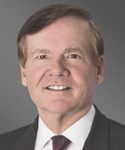Advocacy efforts in the medical profession are evolving as technology evolves. The rise of social media, in particular, has brought about great change in the way organizations, such as the ACR, interact with Congress. At the 2017 ACR/ARHP Annual Meeting, Nov. 3–8 in San Diego, former Sen. Tim Hutchinson (R-Ark.) will discuss how to continue…






